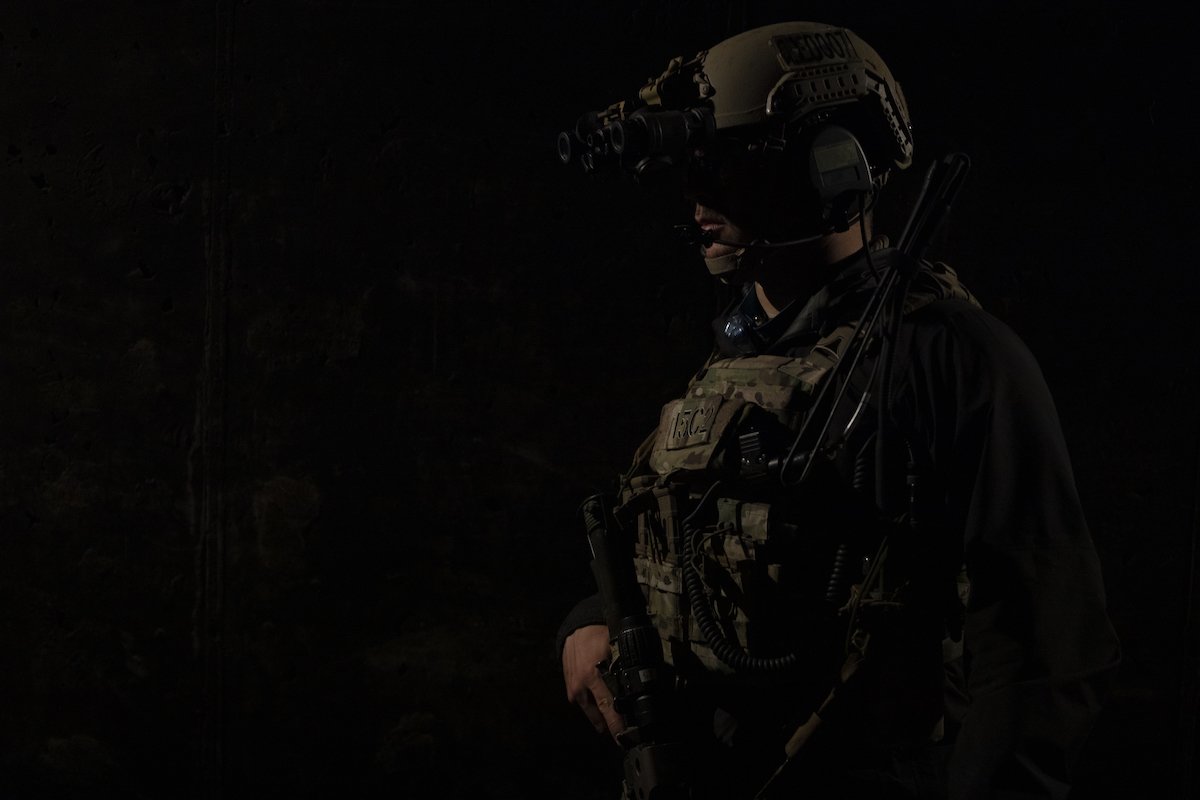
The Military Times reported that eight Green Berets will receive letters of reprimand after an investigation into the death of an Afghan commando, but none will face criminal charges. US Army photo by Sgt. 1st Class Justin P. Morelli.
A criminal investigation into eight US Special Forces soldiers’ role in the death of an Afghan shooting suspect produced troubling accusations against the Green Berets, but not enough evidence to issue formal charges or open a court-martial against any of the special operators, according to a wide-ranging investigation by Military Times.
Instead, all of the Special Forces soldiers were issued general officer memorandums of reprimand, which will likely impact their careers.
The punishments stem from the 2018 death of Wahedullah Khan, an Afghan commando who shot three Czech special operations soldiers in an insider attack at Shindand air base in Herat province, killing one and wounding the other two. Khan died hours later at the base’s medical clinic from injuries sustained from heavy beatings he appeared to have sustained while in custody after the shooting.
Military Times obtained documents from an Army Criminal Investigation Division investigation into Khan’s death, which focused on a team of eight soldiers from 7th Special Forces Group — one captain, a chief warrant officer, a master sergeant, three sergeants first class, and two staff sergeants — who interrogated Khan in the hours after the shooting.
A civilian translator, Military Times reported, initially told investigators that the Americans had not harmed Khan but later, when interviewed outside Shindand, said the Americans had tortured Khan.

Documents obtained through the Freedom of Information Act, according to Military Times, said the interpreter accused the American soldiers of assaulting Khan by twisting his testicles and slamming him against a breaker box.
Afterward, the translator told investigators, Green Berets told him “forget that this happened,” and warned the man, “you didn’t see anything.”
However, murky evidence and conflicting witness statements — some provided by the American soldiers — also said that Khan had been questioned by both Czech and Afghan soldiers and may have faced torture at the hands of either group, Military Times reported.
Investigators completed their report in May 2021 and handed their findings over to leaders at the 1st Special Forces Command, which ultimately decided to issue the letters of reprimand, Military Times reported.
“In this case, the investigation’s results did not present sufficient evidence of misconduct beyond a reasonable doubt for any of the offenses, which is the standard required to obtain a conviction at court-martial,” 1st Special Forces Command spokesman Maj. Dan Lessard said in a statement. “Furthermore, there was not probable cause to believe that the most serious alleged offenses, including murder, had occurred.”
Read Next:

Dustin Jones is a former senior staff writer for Coffee or Die Magazine covering military and intelligence news. Jones served four years in the Marine Corps with tours to Iraq and Afghanistan. He studied journalism at the University of Colorado and Columbia University. He has worked as a reporter in Southwest Montana and at NPR. A New Hampshire native, Dustin currently resides in Southern California.
BRCC and Bad Moon Print Press team up for an exclusive, limited-edition T-shirt design!
BRCC partners with Team Room Design for an exclusive T-shirt release!
Thirty Seconds Out has partnered with BRCC for an exclusive shirt design invoking the God of Winter.
Lucas O'Hara of Grizzly Forge has teamed up with BRCC for a badass, exclusive Shirt Club T-shirt design featuring his most popular knife and tiomahawk.
Coffee or Die sits down with one of the graphic designers behind Black Rifle Coffee's signature look and vibe.
Biden will award the Medal of Honor to a Vietnam War Army helicopter pilot who risked his life to save a reconnaissance team from almost certain death.
Ever wonder how much Jack Mandaville would f*ck sh*t up if he went back in time? The American Revolution didn't even see him coming.
A nearly 200-year-old West Point time capsule that at first appeared to yield little more than dust contains hidden treasure, the US Military Academy said.












